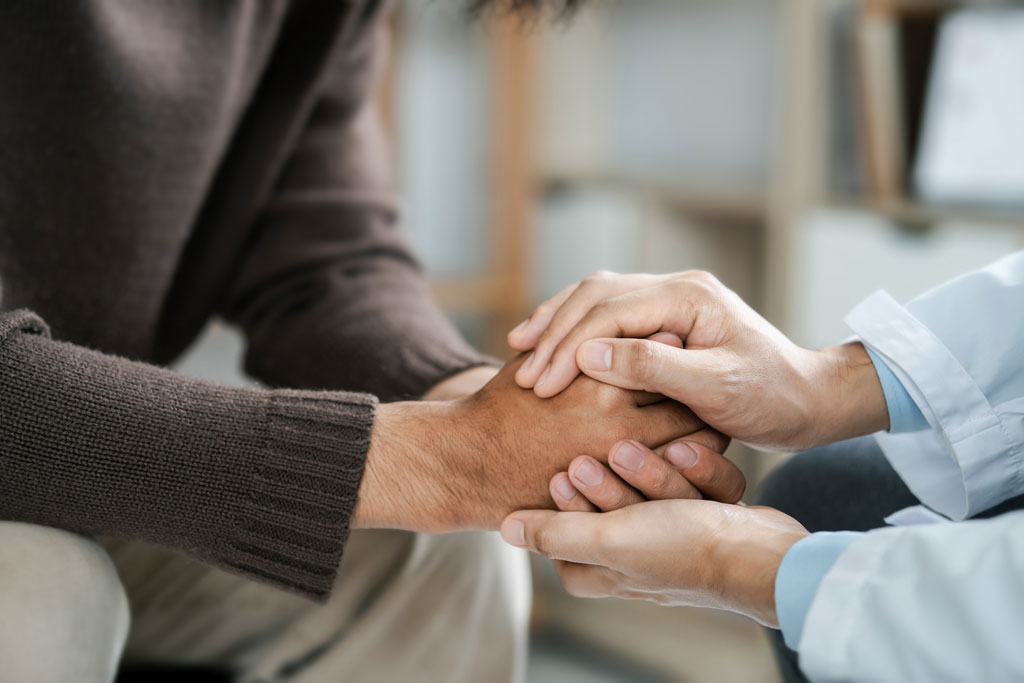We Are Here To Help
There’s Always Another Option. ♡
- © Copyright 2026 Alternative Options Counseling Center, Inc | Site Map
Looking for help with PTSD Huntington Beach? Find local services, support groups, and mental health professionals who can help you get better.
Home - Trauma & PTSD - PTSD Huntington Beach: What Are Your Therapy Options?
After experiencing a traumatic event like assault, going to war, being in a natural disaster, or being in an accident, someone may develop post-traumatic stress disorder (PTSD). People with PTSD may experience flashbacks, nightmares, intrusive thoughts, avoidance behaviors, hyperarousal, and mood disturbances.1
Bed on the National Center for PTSD, about 7-8% of the US population will experience PTSD at some period in their lives. The prevalence of PTSD varies among different groups of people. For example, military veteasrans and survivors of sexual assault or interpersonal violence may have higher rates of PTSD than the general population.

Let us guide you through your options and treatment opportunities. Contact Alternative Options today.
It’s important for someone with PTSD to get help because it can affect their daily life, relationships, and quality of life. PTSD can also happen with other mental health problems, like anxiety, depression, or drug abuse, making treatment even harder.
Psychotherapy, medication, and self-help methods like exercise, relaxation techniques, and social support are all good ways to treat PTSD. With proper treatment, many people with PTSD can recover and regain a sense of control over their lives. If you or a loved one catch yourselves looking for PTSD Huntington Beach treatment options, read more to find resources that are right for you.
There are some critical aspects of properly understanding PTSD, some of which will be detailed below.
There are many different events that can lead to an individual developing PTSD, such as:
The various symptoms when the individual develops PTSD are the following:
There are various risk factors, such as traumatic life events, that can influence someone’s development of PTSD, including:
There is no one-size-fits-all when it comes to PTSD. PTSD can impact anyone, including:
Post-traumatic stress disorder can have a wide range of impacts on a person’s life, including:
PTSD can impact a person’s psychological well-being. It can include symptoms such as anxiety, depression, flashbacks, and nightmares. Sometimes, when someone goes through a challenging experience, they might feel bad about themselves and blame themselves for what happened. It can make it hard for them to trust or get close to others. They might also have difficulty focusing on things and feel like they don’t have any emotions.
PTSD can also impact a person’s life. For example, individuals with PTSD may experience chronic pain, headaches, or digestive issues. They may also have an increased risk for cardiovascular disease due in part to the impact of stress on the body.
PTSD can affect a person’s ability to form and maintain relationships with others. People with PTSD may feel lonely and like they don’t belong. They may feel cut off from others and alone. They might have trouble talking to or trusting other people, so they might avoid all social situations. It can make it hard for people to get the help they need to get better from their symptoms and can cause problems at work and in personal relationships.
PTSD Huntington Beach treatment options generally fall into three categories. These include medication, psychotherapy, and alternative therapies. When considering PTSD symptoms management, it’s important to have a base-knowledge on every option.
Medications such as selective serotonin reuptake inhibitors, serotonin-norepinephrine reuptake inhibitors (SNRIs), and antipsychotics can treat PTSD symptoms like anxiety, depression, and nightmares. These medications can help regulate the chemical imbalances in the brain that contribute to PTSD.
Various forms of psychotherapy can be effective in treating PTSD. PTSD can be treated with different kinds of psychotherapy. Cognitive-behavioral therapy, known as CBT, is a type of therapy that is often used to treat PTSD. CBT helps people figure out what negative thoughts and actions are making their PTSD symptoms worse and change them.
Choosing the proper PTSD Huntington Beach treatment options depends on many things, such as how bad the symptoms are, what the person wants, and what resources are available. Some considerations for choosing a treatment option include:
Important note: You can search on the internet “PTSD Huntington Beach” to see your PTSD treatment facility options near you.
Some benefits include:

In conclusion, seeking treatment for PTSD is crucial for those who have experienced trauma. The effects of PTSD can be long-lasting and negatively impact an individual’s daily life. At Alternative Options, we offer various resources for many mental health disorders, including PTSD Huntington Beach.
We are passionate about addressing the needs of every client. Alternative Options are excellent for those seeking professional help with their PTSD.
Additionally, treatment for PTSD Huntington Beach is essential for improving the effectiveness of treatment options. Alternative Options has programs available for you to take the next step in your recovery journey, including an intensive outpatient program and a partial hospitalization program. By taking advantage of the resources available in Huntington Beach, individuals can take steps towards a brighter future and a better quality of life.
Don’t wait any longer to seek help — reach out to Alternative Options today and take control of your PTSD. We would love to meet you!
Serving Los Angeles and Orange County Areas
We Are Here To Help